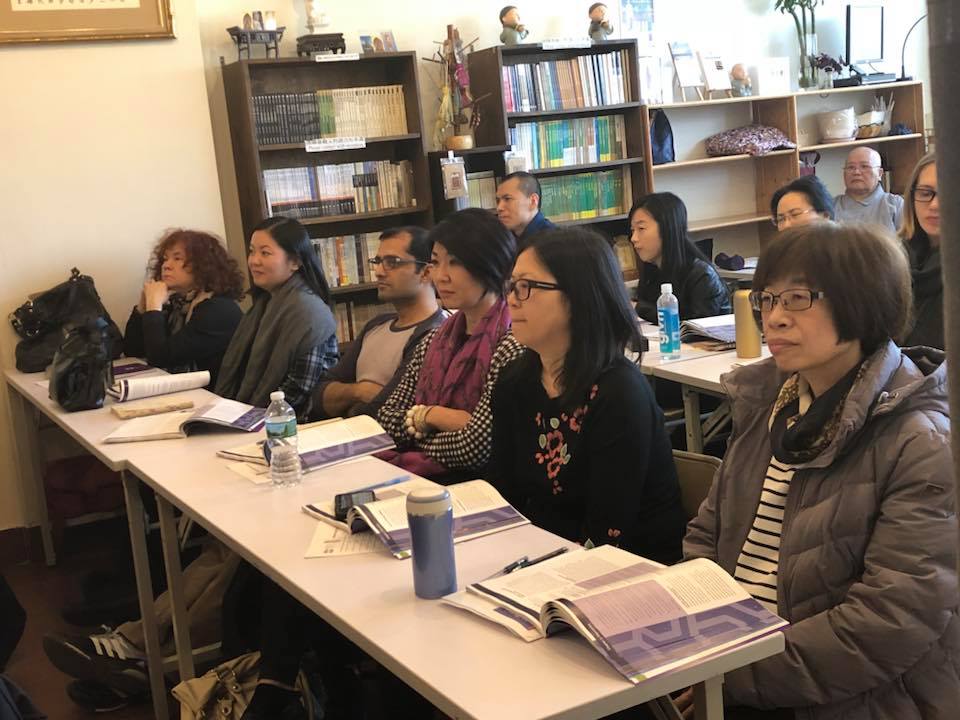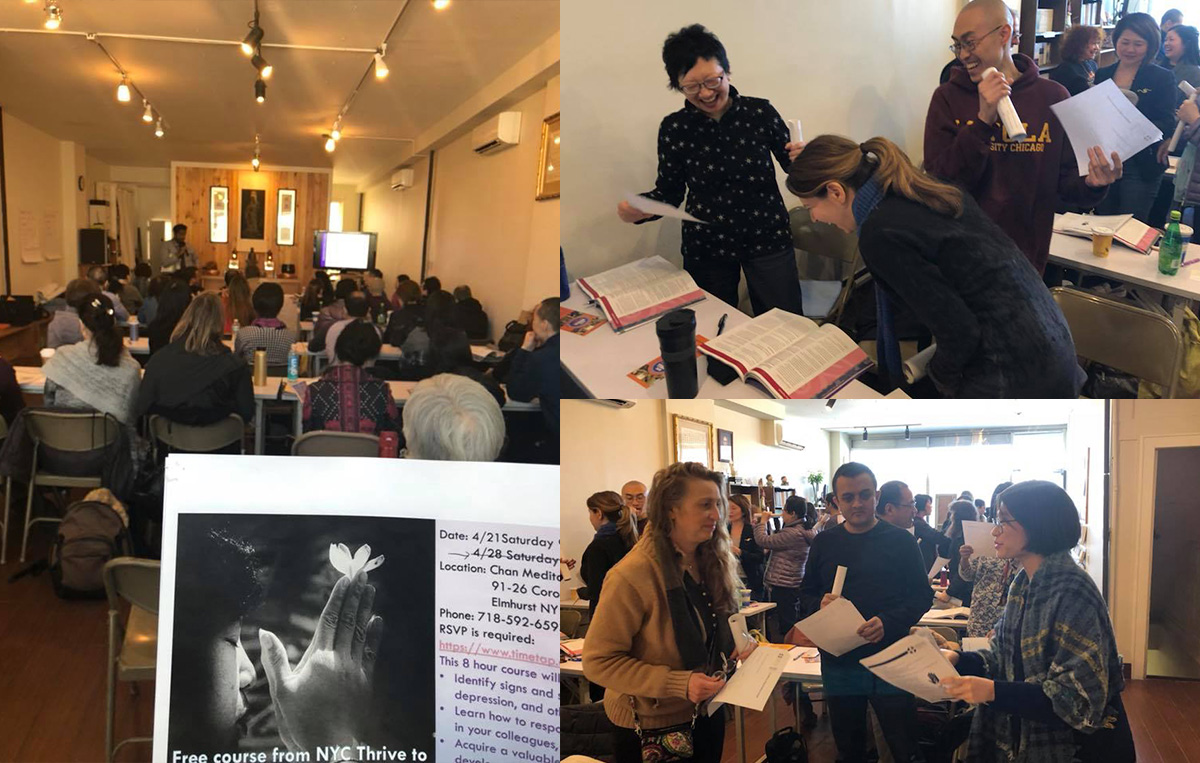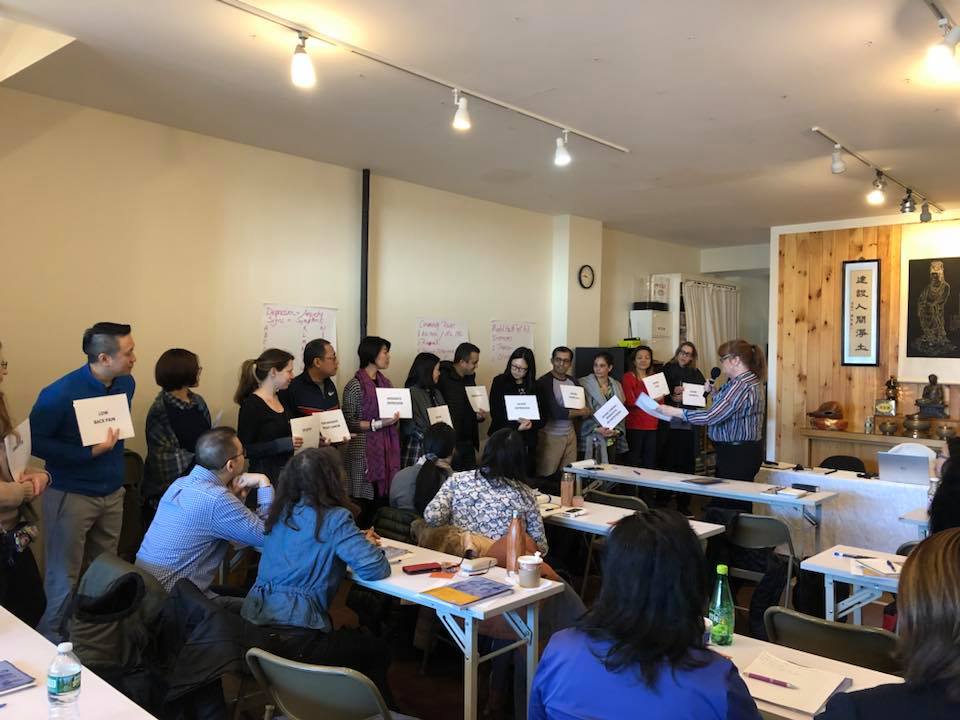
First Aid is a strategy applying on people in need of physical health intervention, such as CardioPulmonary Resuscitation known as CPR, and basic management of trauma before health care professionals intervene. When people suffer from a sudden illness, first Aid can provide the screening to save lives, prevent conditions from worsening, or to promote recovery. But, what about people who need immediate assistance in their mental health? According to the national survey of America, it is found that 18.5% of adults (18 or older) experiences one kind of mental illness in a year. Is there any way for us to help? On April 21, 2018, at Chan Meditation Center of Dharma Drum Mountain Buddhist Association, the Adult Mental Health First Aid Training was offered by New York City Health Department. Many common misconceptions of mental diseases were clarified during the course. We learned how to identify the symptoms of depression, anxiety, psychosis, substance abuse, and Mental Health Crisis.

The Action Plan, Aka: “ALGEE”, is to assess for risk of suicide or harm, to listen non-judgmentally, to give reassurance and information, to encourage appropriate professional help, and to encourage self-help and other support strategies.
The most valuable thing I learned from the course was not only the method of identifying patients from their symptoms and signs, but also the right attitude. Just like Mental Health First Aid Action Plan emphasizes: Listening to the patient non-judgmentally and never put our own judgements and thoughts on others; Giving reassurance and Information, rather than advice; Helping them make better choices other than making decisions for them. This is a challenge for our existing thought — We are so accustomed with judging people and are more willing to “teach” others what to do. The right attitude is just like cultivation. We should lay down our arrogance and treat others equally.

Many thanks to the instructors, Teresa and Olivier. They didn’t only teach us the contents on the book, but also designed games for our better understanding. The most unforgettable game was in the afternoon. When discussing about the auditory hallucination, we played a role-play in the group. There were three characters; Patient, the sound of hallucination, and another person who was talking to the patient in reality. I was the “patient” . When I was chatting with my partner, the “hallucination sound” continued on speaking by my ear. It was a deep voice, just like whisper. “Why are you talking to him?” “Don’t trust him.” “Is he looking at you?”... I was a little afraid and confused, and couldn’t concentrate on the conversation with my partner. Finally I started to understand the patients with psychosis. Luckily we know that was just a game; but for them, their sufferings from negative thoughts and horror are real . The compassion rises because of understanding. When we have the better understanding of mental disorders to reduce our fear, we would be able to show our empathy naturally and give them real reassurance.

